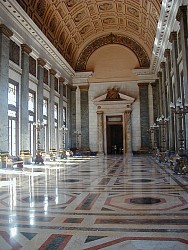Scope
The theme of the conference is “Capacity Building for Sustainable Development” which includes following policy issues and specific topics:
Policy Issues
- History and preservation of the hydrographic and geodesic heritage
- Physical and virtual infrastructures - tools and procedures
- Quality standards
- Future projects - challenges and opportunities
- Legal and social welfare and security in life - contributions of surveyors
- Funding, transfer of technology and professional development
All ten FIG technical commissions will attend the conference and papers therefore requested to all following topics: Professional Standards and Practice; Professional Education; Spatial Information Management; Hydrography; Positioning and Measurement; Engineering Surveys; Cadastre & Land Management; Spatial Planning & Development; Valuation and the Management of Real Estate; and Construction Economics and Management
Specific Topics
Surveying and Geodesy
- Methods and technologies to develop geodetic networks
- New surveying technologies
- Methods and development of precise surveying technologies
- Application of new technologies in the geodetic studies
- Norms and standards for geodetic networks
- Reference frame
- Navigation systems
- Methods and new technologies in engineering surveying (in industry, construction, architecture and control of public works
- Standards of geodetic and surveying measurements.
Cadastre, Land Management and Urban and Rural Planning
- Urban and rural cadastre
- 3D GIS and new technologies in the information processing
- International cadastral standards
- Valuation and real estate management
- Cadastre and registries
- Procedures of large scales urban development
- Rural development and land use
Photogrammetry and Remote Sensing
- Digital photogrammetry and 3D models
- New technologies for development, processing and management of 3D topographic maps (including restoring and preserving monuments and historical buildings and constructions)
- Remote sensing and 3D digital processing
- Use of modern technologies for development and updating of maps by satellite images
- Monitoring of natural resources, disasters and environment by remote sensing and GIS
- Visualization of 3D data
- International standards for these activities
Digital Cartography and GIS
- Technological innovations
- Web-based solutions
- Modern technologies in information collection and data management
- GIS for infrastructure networks
Hydrography and Marine Surveying
- Modern technologies in hydrography
- Use of new technologies for nautical and electronic charts
- Development of coastal zone management
Education and Professional Practice
- Educational methodologies and trends in education
- CPD and training
- Interaction between research, education and practice
- Postgraduate professional development
- Exchange of students and professionals
- Professional standards (educational qualification and access to market)
Spatial Data Infrastructures
- Regulations and development of standards
- Spatial information management
- Practical experiences of use and application of SDI
- Policies of development and standards
- Systems for data capture, integration, edition and metadata
Environment
- Use and management of land resources
- Risk and disaster manegement - studies of potential disaster zones
- Education on environmetal issues
- Environmental policies, strategies and activities
Strategies, Integration and Development of Surveying Profession
- State of the art and strategies
- Developing joint surveying projects
- Technical, professional and scientific development of surveyors
